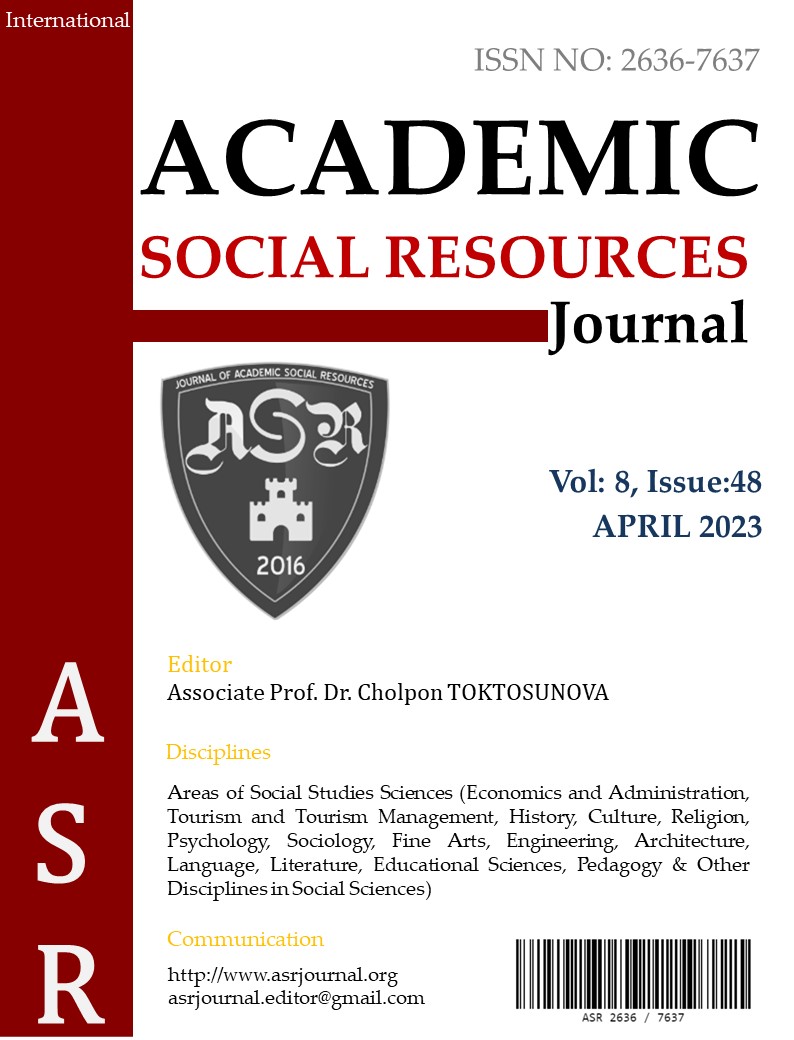Author :
Abstract
Bu çalışmanın amacı okullarda akıl ve zekâ oyunları kullanımının öğrencilerin başarısına olan katkılarını ortaya koymaktır. Çalışmanın hazırlanmasında literatür taraması yöntemi kullanılmıştır. İnceleme kapsamına giren çalışmalar, son on yılda ülkemizde yapılan çalışmalardan ölçüt örnekleme yöntemi ile belirlenmiştir. Literatür taraması sonucuna göre, bu alanda en çok yüksek lisans tezi çalışması yapıldığı görülmüştür. Bu tezlerde veri toplama aracı olarak en çok test yöntemi kullanıldığı görülmüştür. Akıl ve zekâ oyunları alanında en çok ilkokul ve ortaokul öğrencileriyle çalışma yapıldığı tespit edilmiştir. Bunun en önemli nedeni 2013 yılından itibaren Milli Eğitim Bakanlığı tarafından Akıl ve Zekâ Oyunları Dersinin ortaokullarımızda seçmeli ders olarak okutulmaya başlanmasıdır. Yapılan çalışmalar amaçlarına göre incelendiğinde, genellikle zekâ oyunları dersini okutan öğretmen ve öğrencilerin görüşü alınarak, derslerde akıl ve zekâ oyunları kullanmanın öğrencilerin ders tutumundaki değişiklikleri inceleyen çalışmaların yapıldığı görülmüştür. Yapılan literatür taraması sonucunda, eğitimde zekâ oyunları kullanımının öğrencilerin problem çözme yeteneğini, üst düzey zihinsel düşünme yeteneğini geliştirdiği görülmüştür. Duyuşsal özelliklerine etkisi incelendiğinde ise öğrencilerin zekâ oyunlarından zevk aldığı ve mutlu olduğu ulaşılan sonuçlardandır. Sosyal yaşamda ise akıl ve zekâ oyunları öğrencilerin iletişim ve özgüvenlerinin gelişmesine olumlu katkılarının olduğunu ortaya koymuştur. Yapılan araştırmalarda katılımcıların; akıl ve zekâ oyunlarının ilişkilendirildiği derslere karşı öğrencilerin olumlu tutum geliştirdiği orta konulmuştur. Çalışma sonunda elde edilen bilgiler ışığında çeşitli öneriler yer almıştır.
Keywords
Abstract
The aim of this study is to reveal the contribution of the use of mind and intelligence games in schools to the success of students. Literature review method was used in the preparation of the study. The studies within the scope of the review were determined by the criterion sampling method from the studies conducted in our country in the last ten years. According to the results of the literature review, it was seen that the most postgraduate thesis work was done in this field. In these theses, it was seen that the test method was mostly used as a data collection tool. In the field of mind and intelligence games, it has been determined that most of the studies are conducted with primary and secondary school students. The most important reason for this is that the Mind and Intelligence Games Course has been started to be taught as an elective course in our secondary schools by the Ministry of National Education since 2013. When the studies are examined according to their objectives, it has been seen that studies examining the changes in the lesson attitude of the students using mind and intelligence games in the lessons, generally by taking the opinions of the teachers and students who teach the intelligence games course. As a result of the literature review, it has been seen that the use of intelligence games in education improves students' problem-solving skills and high-level mental thinking skills. When the effect on their affective characteristics is examined, it is one of the results that the students enjoy the mind games and are happy. In social life, mind and intelligence games have revealed that they have ositive contributions to the development of communication and self-confidence of students. In the researches, the participants; It was revealed that the students developed a positive attitude towards the lessons in which mind and intelligence games were associated. Various suggestions were made in the light of the information obtained at the end of the study.





